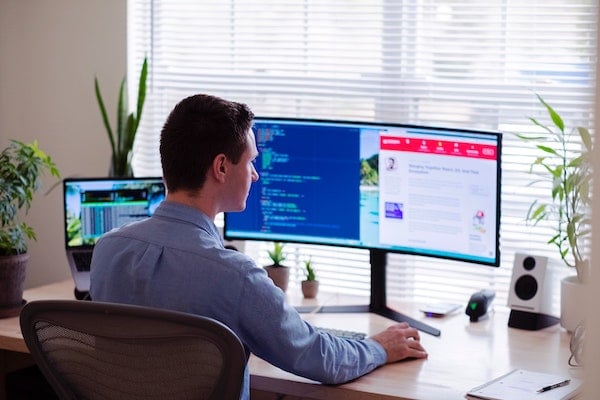Published on
Remote Work and the Under-Skills Pandemic

It is true that in many areas of life, 2020 has made us focus on what is most important, namely, human connection. In the absence of this connection, the ordinary has become what is most extraordinarily missed: a stroll through a park, a board game with a friend or a conversation over a beverage of choice. We took so many things for granted, but 2020 has reminded us of how important those simple pleasures are. Yet, I want us to avoid the trap of 2020 being the year that our technically educated workforce becomes out of mind and out of sight. Sadly, the decade-or-more long national skills gap conversation tried to bring to the fore this blind spot in our education and workforce systems. Nevertheless, I am hopeful that 2020 could be the year that we see the under-skills pandemic for what it is and do something about it before it is too late.
During what some have called “the lost year”, a conversation emerged around working from home, as most of us tried it for the first time. Of course, the conversation was not new. Harvard had called it “The Third Wave” as early as 2013, but the COVID-19 pandemic ushered in a Tsunami-like wave of conversation about how the future of work would occur from home. Not since the advent of AOL Instant Messenger had there been such a flood of excitement. Yet, as I watched this wave build, I could not help but begin to imagine how these conversations could bury a world of work that always requires leaving home.
When the doorbell rings, and the item you ordered online arrives, it seems magical. In a sense, it is the closest thing to the cartoon The Jetsons that we have accomplished. And this magic that brings all sorts of goodies to our door in what feels like minutes makes working from home possible. And here is my concern: Focusing too much on the benefits of virtual work and why more people need to embrace it may lead to avoiding the elephant in the room—virtual work is contingent upon in-person work. It should be obvious. The fiber delivering the internet cannot be buried from home, nor can the welder fix the axle for the CDL driver virtually from the comfort of their home office. I also do not recommend plumbing, electrical work or any construction being done over Zoom. While these examples are funny to consider, a society without the technically trained workforce it needs is far from humorous. Rather, this problem can best be described as an under-skills pandemic, and I am not even close to being the first person to give warning.
The Technical College System of Georgia, the two-year college system focused on providing people with workforce education that connects them with meaningful careers, is using 2020 to create clarity about the potential of a technically trained society. In January of 2021, Savannah Technical College, my institution, learned that we were awarded a $4.9 million dollar US Department of Labor Strengthening Community College innovation grant to help create the microcredentialing system we needed to move our workforce forward. What we are doing with this grant in conjunction with a larger set of initiatives is positioning technical education and our technically educated workforce front and center as a pre-emptive approach to ward off the under-skills pandemic.
While millions of jobs cannot be done from home, we are re-imagining that the education that leads to those jobs can at least start there. Through immersive learning experiences, virtual and augmented reality, and hybrid course designs, all facilitated by a cloud based single-pane front end, we are leading an effort to make the targeted education that leads to careers (microcredentials) more affordable and accessible to all Georgians. This means that our efforts integrate the systems that support the other, less visible parts of our community: high school drops, ESL learners, rural communities and people with low-income.
Two of our industries of immediate focus are healthcare and manufacturing—work that cannot be done from home. During the pandemic, we have all felt the waves of fear as threats to both systems have been under full assault. Whether it be toilet paper or a grandfather’s doctor visit, we are focusing on these industries more acutely and understand that they are more essential than ever before. However, manufacturing and healthcare will be under permanent pandemic-level assault if we cannot produce the skilled workforce these industries need to provide the essential services we require.
We put on glasses to get 20/20 vision because we know that it is better to see clearly what is ahead of us. In society, we are better if the year 2020 represents for us a moment of clarity, not just for what is most important but for who is essentially important. If we have any hope that remote work can be a viable way of promoting a healthy work ecosystem, less traffic congestion and pollution, more livable cities and more social mobility, then we must ensure that technical education and a technically educated workforce are more in focus than ever. Because, like with all pandemics, now is the time to act before it is too late.
In Georgia, we believe we have on the right glasses, and The Technical College System of Georgia is building a future where technical education and its students are in full and clear sight.
Disclaimer: Embedded links in articles don’t represent author endorsement, but aim to provide readers with additional context and service.
Author Perspective: Administrator



